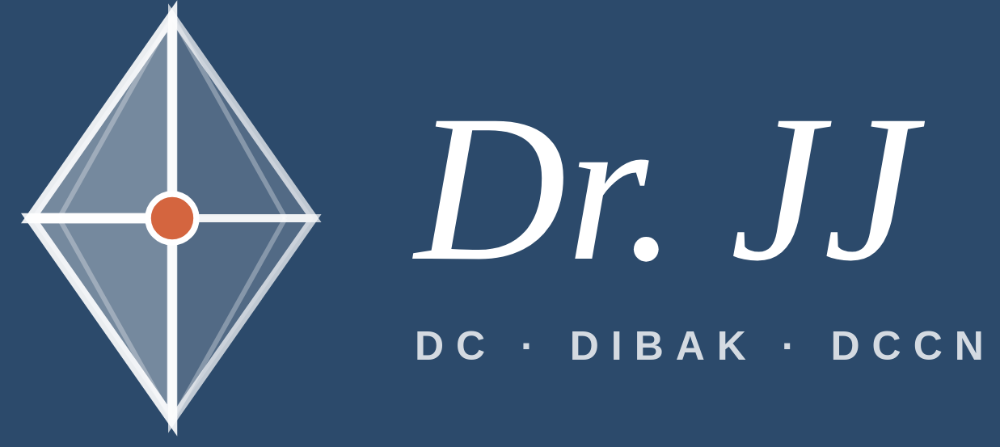Can TMJ Cause Other Problems?

Most people say "I have TMJ" when describing jaw pain. That's like saying "I have knee" instead of "I have knee pain." TMJ stands for temporomandibular joint—the hinge connecting your jaw to your skull. We all have two of them. What people mean is TMJ dysfunction: the joint isn't moving correctly, muscles aren't firing in proper sequence, or structural compensation has developed.
Why does this matter? Because TMJ dysfunction doesn't stay isolated to your jaw.
The Neurological Reality of TMJ Dysfunction
Your TMJ sends massive sensory input to your brain—approximately 35-40% of all proprioceptive information processed by your sensory cortex comes from the jaw and surrounding structures. This is why neurologists mapping the homunculus (the brain's representation of body parts) show disproportionately large areas dedicated to the face and jaw.
When TMJ mechanics are disrupted, that distorted sensory input affects motor control throughout the body. This isn't theoretical. We see it clinically: patients come in with migraines, low back pain, or carpal tunnel symptoms. Muscle testing reveals TMJ imbalance as a primary driver. Correct the jaw mechanics, and remote symptoms often resolve.
TMJ and the Atlas (C1) Connection
One of chiropractic's foundational observations: if you have TMJ dysfunction, you have an atlas problem. If you have an atlas problem, you have TMJ dysfunction. The relationship is mechanical and neurological. The upper cervical spine and jaw form an integrated functional unit. Compensation in one creates dysfunction in the other.
Applied Kinesiology muscle testing lets us identify which muscles controlling the TMJ aren't firing correctly, test their neurological responses, and determine if the problem originates structurally (the joint itself), neurologically (muscle inhibition), or biochemically (inflammation affecting muscle function).
The Sphenoid-Pituitary Connection
The muscles controlling your jaw—primarily the temporalis, masseter, and pterygoids—attach to the sphenoid bone. Your pituitary gland sits inside the sphenoid, suspended in a small cavity called the sella turcica.
The pituitary is your endocrine system's master regulator. When TMJ muscles maintain chronic tension or fire asymmetrically, they create mechanical stress on the sphenoid bone. This can affect pituitary function—not through direct compression, but through altered mechanical tension affecting cerebrospinal fluid dynamics and vascular flow around the gland.
This is why we sometimes see hormonal patterns normalize when TMJ mechanics improve. The connection isn't mystical. It's mechanical and neurological.
Clinical Pattern Recognition
Practices run in cycles. One patient with a specific presentation responds well, refers others with similar problems, and suddenly you're seeing clusters of the same dysfunction. The last few months: TMJ cases. Different chief complaints—headaches, neck pain, digestive issues—but muscle testing traced the pattern back to jaw imbalance.
Standard disclaimer: I don't treat pathological TMJ conditions. Disc displacement requiring surgery, degenerative joint disease, fractures—those need medical or surgical intervention. What Applied Kinesiology addresses is functional TMJ dysfunction: muscles not firing correctly, joint mechanics compensating, neurological imbalance affecting the system.
How We Address TMJ Dysfunction
The primary tool is the chiropractic adjustment—restoring proper motion to the upper cervical spine (especially C1/atlas) and the TMJ itself when indicated. Applied Kinesiology adds precision: muscle testing identifies which specific muscles are inhibited, which are facilitated (overactive), and what's driving the imbalance.
We test nutritional factors (inflammation affecting muscle function), structural factors (joint restriction), and neurological factors (reflex dysfunction). Then we correct what's actually wrong instead of guessing.
If you're experiencing chronic jaw tension, clicking, pain, or have been told you grind your teeth at night, the problem might be more complex than a mouthguard can address. TMJ dysfunction affects your whole system. Addressing it properly requires understanding the structural, neurological, and biochemical factors maintaining the pattern.
For more information on TMJ symptoms and how to recognize dysfunction, read: 10 Signs of TMJ Dysfunction.
Comprehensive TMJ Evaluation
If you're in Frisco, Texas or the surrounding North Dallas area and dealing with TMJ symptoms that aren't responding to conventional treatment, Applied Kinesiology evaluation can identify structural, nutritional, and neurological factors driving your dysfunction.
Call or text: (972) 989-4683
Book an appointment online →
Stay connected with news and updates!
Join our mailing list to receive the latest news and updates from our team.
Don't worry, your information will not be shared.

